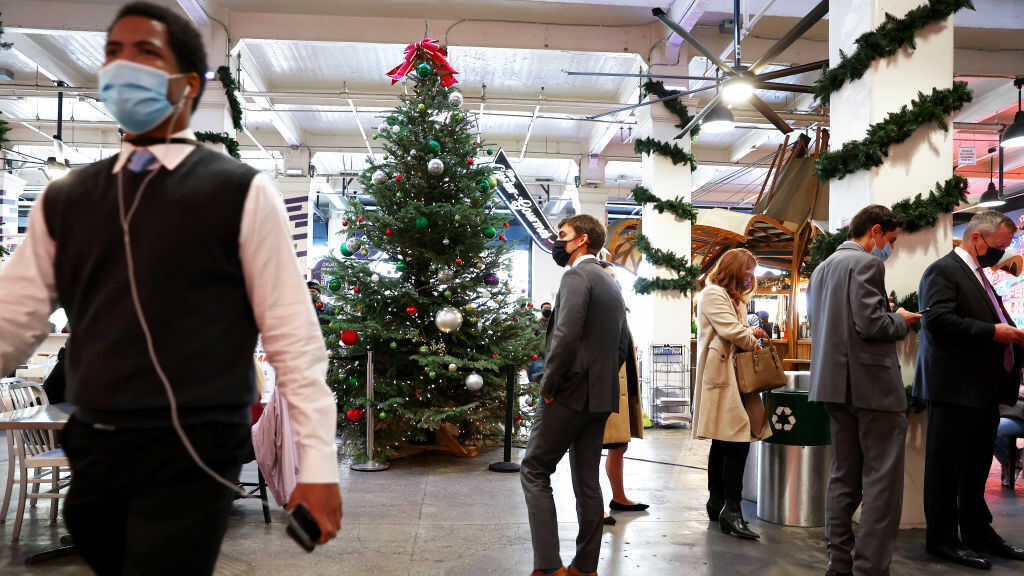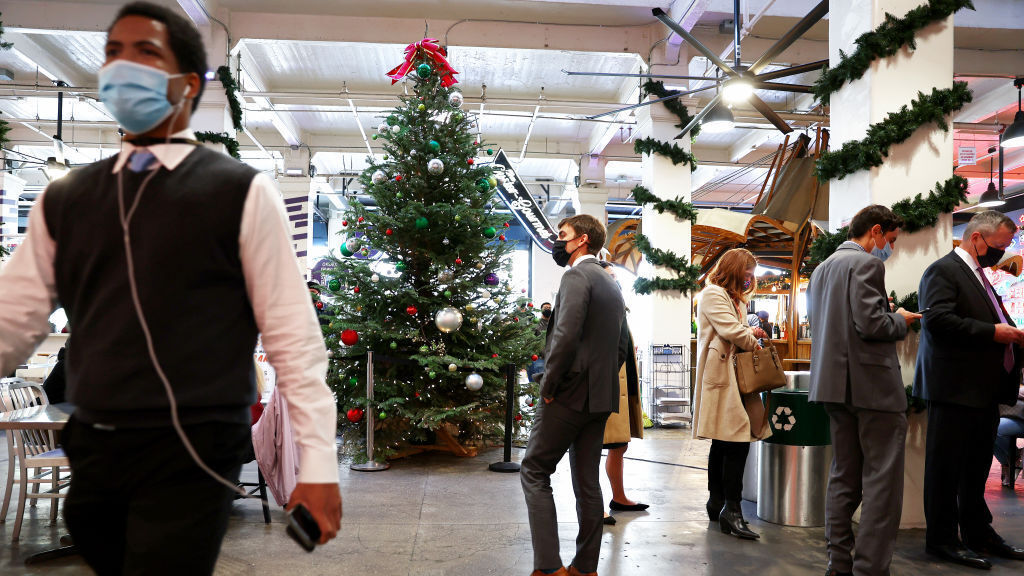
People wear face coverings inside Grand Central Market on December 15, 2021 in Los Angeles, California. Mario Tama/Getty Images hide caption

People wear face coverings inside Grand Central Market on December 15, 2021 in Los Angeles, California.
Mario Tama/Getty ImagesThis holiday season we all deserve a little peace and quiet with the people we love, but the rapid spread of the Omicron variant of COVID-19 threatens to complicate things for everyone.
As tests appear to be in short supply in places like New York City, the White House announced plans to send 500 million at-home tests to Americans who want them and new federal testing sites to meet the demand in the coming weeks.
But despite the rising cases and concern, Dr. Ashish Jha, Dean of the Brown University School of Public Health, says this is not March 2020 all over again. And he offers some guidance to help us through the next few weeks.
Email us at
This episode was produced by Lee Hale. It was edited by Ashley Brown. Our executive producer is Cara Tallo.

 Live Radio
Live Radio